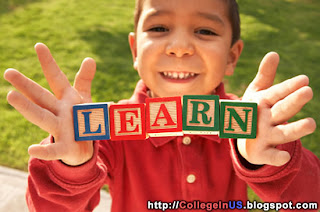Knowing Our Child's Learning Ability
 Knowing Our child's learning ability - Each and every child is different and so also is their learning ability.
Knowing Our child's learning ability - Each and every child is different and so also is their learning ability. Some may learn and understand faster than others. Some children, whether they are in school, junior college or university, may require some additional help to grapple with their school or college work. Often it is not that the child isn't capable, it is just that he might not be able to fully understand what he heard in class and may need to revise what he has learnt or get further explanations on the subject. Such a child should consider taking extra tuition in that particular subject to enable him cope.
The advantages of having a home tutor
Although home tuition in Singapore is expensive, it has several advantages. It helps your child improve his or her performance in class. If your child is lacking in confidence or independence, then giving him home tuition may assist him reach his full potential. Some children have uncertainties and problems with certain subjects. By taking home tuition, the tutor is able to identify the child's strengths and weaknesses and will be able to tailor the tuition to focus on the needs of the child without neglecting the child's strengths. Also this allows the tutor to go at the child's pace and allows him to focus on the areas that need the most attention.(see HERE) Having a home tutor could also be less intimidating for a student who is shy and finds it difficult to speak in front of a group. Taking tuition at home provides the child the flexibility of choosing the preferred time and days when to have his tuition and he gets to have it in the comfort of his home.
Look for a proficient home tutor
When looking to provide your child with home tuition in Singapore, there are some factors you have to consider. It is essential that you find a tutor that has the right academic qualifications, has the proficiency to teach the subjects required and the right personal demeanor to tutor your child. It would also be advisable to do a background check on the tutor or the agency who is supplying the tutor.
A home tutor can help boost your child's performance in class
When your child reaches Junior College level, it might help to boost his or her performance in class by providing some extra tuition, especially if you find your child's grades are lower in a certain subject. If you find that your child has a lower grade in economics than in any other subject, then finding him a good JC Economics tutor could help improve his or her grade to bring it up to the level of his other subjects.(see HERE) There are several agencies or individuals that offer JC tuition in Singapore, but it is important that you find the right tutor who will be able to help bring out the full potential in your child.











